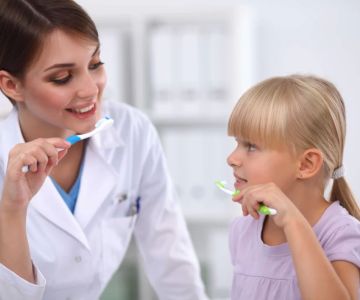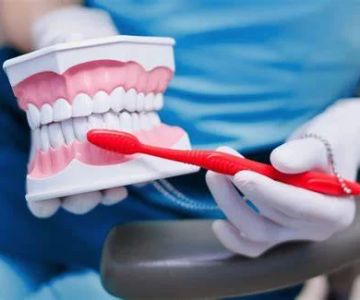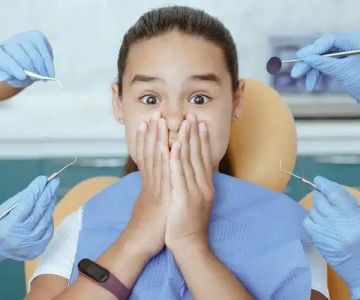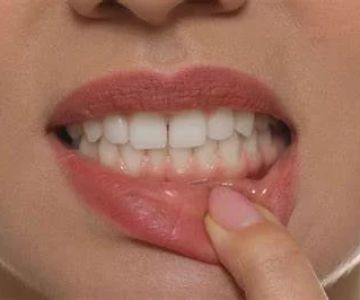Understanding the Importance of Oral Hygiene in Children
Oral hygiene is more than just a routine chore; it is a cornerstone of overall health, especially for children. Good oral hygiene practices in childhood lay the foundation for healthy teeth and gums throughout life. When children maintain proper oral care, they reduce the risk of dental issues like cavities, gum disease, and infections that can have a ripple effect on their physical health and self-confidence.
Many parents might underestimate how critical oral hygiene is during early childhood. Children's teeth are not only essential for chewing and speaking but also influence jaw development and facial structure. Poor oral hygiene in kids can lead to pain, difficulty eating, and even school absences, which negatively impact learning and social development.
How Oral Hygiene Impacts Children’s Physical Health
Children with poor oral hygiene are at greater risk for dental caries (cavities), which are among the most common chronic diseases in childhood. When plaque builds up from inadequate brushing and flossing, bacteria produce acids that erode tooth enamel, leading to decay. Untreated cavities can cause toothaches, infections, and sometimes the need for extensive dental treatment.
Beyond cavities, oral health issues can cause systemic problems. Infections originating in the mouth can spread to other parts of the body, causing complications such as heart inflammation or respiratory infections. Moreover, chronic oral pain or discomfort can lead to poor nutrition if children avoid eating certain foods due to sensitivity or pain.
The Role of Oral Hygiene in Preventing Childhood Diseases
Maintaining oral hygiene helps protect children from diseases like gingivitis and periodontal disease, which, although more common in adults, can start developing in childhood if plaque is not properly removed. Gum inflammation may seem minor, but if left unchecked, it can progress and damage the supporting structures of teeth.
Recent studies also suggest links between poor oral health and conditions such as diabetes and asthma. Oral bacteria can exacerbate inflammation in the body, highlighting why oral hygiene in kids is a critical element of their overall wellness.
Psychosocial Effects of Oral Hygiene on Children
Oral health significantly affects a child's self-esteem and social interactions. Kids with dental problems often feel self-conscious about their appearance due to discolored, missing, or decayed teeth. This can result in reduced participation in school activities or reluctance to smile and communicate openly.
Children with poor oral hygiene may also experience bullying or teasing from peers, which can impact mental health and development. Conversely, children with healthy teeth tend to have higher confidence and better social skills, which contribute positively to their emotional well-being.
Practical Oral Hygiene Tips for Parents and Caregivers
1. Start Early: Oral care should begin as soon as the first tooth erupts. Cleaning a baby’s gums with a soft cloth and transitioning to brushing twice daily with fluoride toothpaste as teeth emerge helps establish good habits.
2. Supervise Brushing: Children under 8 should be supervised to ensure proper brushing technique and prevent swallowing toothpaste.
3. Teach Proper Technique: Encourage gentle circular brushing and flossing to remove plaque effectively.
4. Limit Sugary Foods and Drinks: Sugary snacks and beverages feed harmful bacteria, increasing the risk of cavities.
5. Regular Dental Visits: Schedule dental check-ups every six months to catch problems early and receive professional cleanings.
6. Make Oral Care Fun: Use timers, songs, or reward charts to motivate children to brush and floss consistently.
Common Challenges in Maintaining Children’s Oral Hygiene
Parents often face challenges such as resistance from children who dislike brushing, limited access to dental care, or lack of knowledge about proper oral health practices. Busy schedules can also make consistent routines difficult to maintain.
Addressing these challenges involves patience and creativity. For example, involving children in choosing their toothbrush or toothpaste flavor can increase enthusiasm. Community programs and school-based dental services also help improve access and education, particularly in underserved areas.
Stories from Families: The Difference Good Oral Hygiene Can Make
Consider the story of the Johnson family from Texas. Their son, Jake, struggled with recurrent toothaches and missed school days before they prioritized his oral hygiene and regular dental care. Within months of consistent brushing, flossing, and dietary changes, Jake’s dental health improved dramatically, along with his school attendance and confidence. This example illustrates how proactive oral hygiene can transform a child’s health and quality of life.
Similarly, community health initiatives in California have demonstrated that educating parents about children’s oral hygiene leads to a significant decrease in childhood cavities and dental emergencies, highlighting the value of public awareness and preventive care.
Long-Term Benefits of Good Oral Hygiene in Childhood
Children who develop strong oral hygiene habits are more likely to carry these practices into adulthood, reducing their risk for serious dental issues later in life. Maintaining healthy teeth and gums supports overall health, helps avoid costly dental treatments, and contributes to a lifetime of confident smiles.
Moreover, early oral care promotes the proper growth of permanent teeth and jaw development, preventing orthodontic problems that can be expensive and uncomfortable to correct.
When to Seek Professional Help
If your child experiences persistent tooth pain, bleeding gums, visible cavities, or difficulty eating, it’s important to consult a pediatric dentist promptly. Early intervention can prevent more serious complications and help develop a personalized oral health plan tailored to your child's needs.
Pediatric dentists specialize in caring for children's unique dental needs, providing preventive treatments such as fluoride applications and sealants to protect teeth. They also educate families on best oral hygiene practices.
Conclusion: Empowering Healthy Smiles Through Oral Hygiene
Oral hygiene profoundly affects children's physical health, emotional well-being, and social development. Establishing good habits early, supported by parental involvement and professional care, can prevent many dental problems and promote a happier, healthier childhood.
Parents and caregivers are encouraged to prioritize consistent brushing, flossing, healthy nutrition, and routine dental visits. For further information and expert services tailored to children’s dental needs, visit Dentistry Toothtruth. Investing in your child's oral hygiene today ensures a lifetime of confident, radiant smiles.







 Westgate Dental Arts3.0 (2 review)
Westgate Dental Arts3.0 (2 review) Coventry Family Dental4.0 (247 review)
Coventry Family Dental4.0 (247 review) Familia Dental3.0 (1028 review)
Familia Dental3.0 (1028 review) Dr. Daniel S. Fife, DDS4.0 (31 review)
Dr. Daniel S. Fife, DDS4.0 (31 review) Dentistry At Suburban Square: Michael I. Wollock, DMD4.0 (1228 review)
Dentistry At Suburban Square: Michael I. Wollock, DMD4.0 (1228 review) Comfort Care Dental4.0 (1156 review)
Comfort Care Dental4.0 (1156 review) The Importance of Oral Health Education During Pregnancy for a Healthy Pregnancy
The Importance of Oral Health Education During Pregnancy for a Healthy Pregnancy Why Skipping Dental Checkups Can Lead to Bigger Oral Health Problems
Why Skipping Dental Checkups Can Lead to Bigger Oral Health Problems Best Tips for Brushing Your Teeth Properly for Healthy Gums: Essential Techniques for Oral Health
Best Tips for Brushing Your Teeth Properly for Healthy Gums: Essential Techniques for Oral Health Advantages of Porcelain Dental Restorations
Advantages of Porcelain Dental Restorations How Can Diabetes Cause Tooth and Gum Problems? Preventing and Managing Oral Health Issues
How Can Diabetes Cause Tooth and Gum Problems? Preventing and Managing Oral Health Issues Healthy Habits for Promoting Good Oral Health and Hygiene: Tips for a Healthy Smile
Healthy Habits for Promoting Good Oral Health and Hygiene: Tips for a Healthy Smile